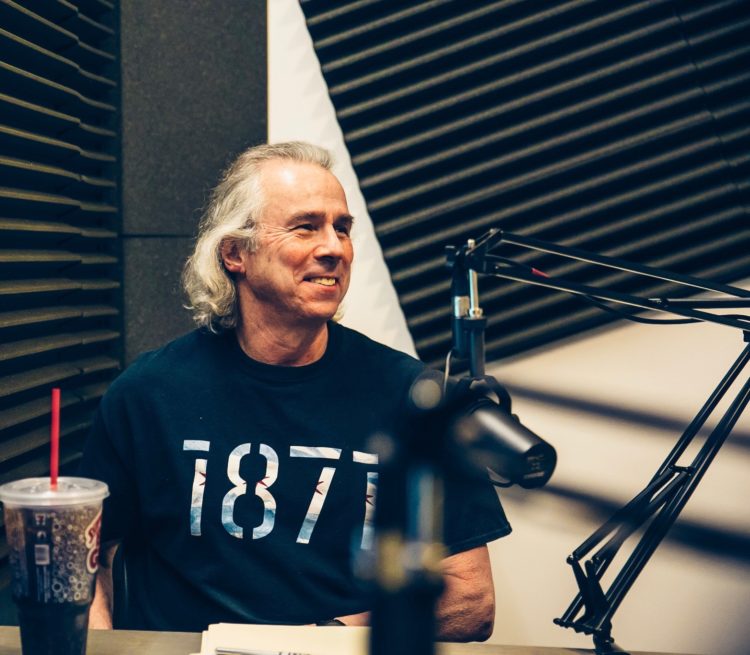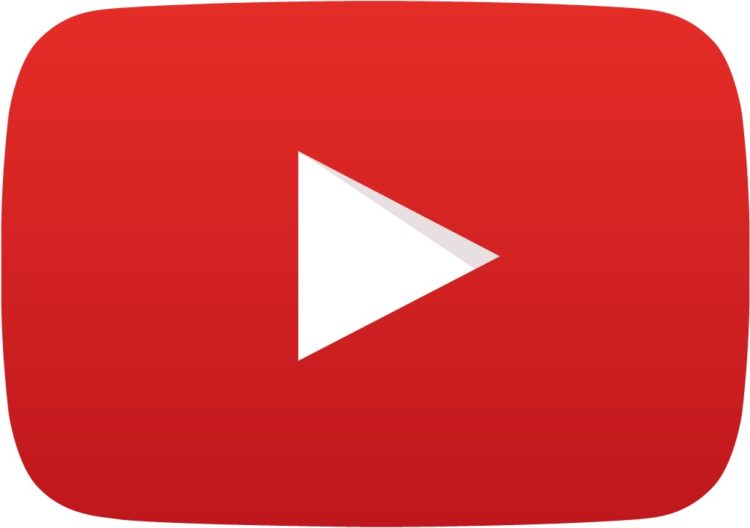

1871 CEO Howard Tullman has seen it all. For over forty years, he’s built, invested and written about businesses. And Tullman shows no signs of slowing down. Today, he leads the largest business and tech incubator in North America, 1871. AE Marketing Group CEO, Brian Walker describes Tullman as the fastest person in all of 1871. This week he joins the Brand Lab Series™ to share his insight on entrepreneurship, business, and marketing.
“Smart is the new handsome,” says Tullman, “and entrepreneurs are the new rockstar.”
Hi everyone, I’m Brian Walker, we’re excited to have you with us. This is episode 38 of the Brand Lab series podcast. Broadcasting each week from 1871 Chicago, where we explore today’s most innovative brands alongside today’s most insightful executives and entrepreneurs. This week we’re thrilled to have Howard Tullman. Howard is the CEO of 1871, and our conversation today will focus on entrepreneurship and start-ups. And with that said, let’s enter the Brand Lab.
Howard, welcome to the Brand Lab series.
I’m happy to be here.
Well I’m thrilled to have you on this is the start of our second season, so we’ve done 36 of these so far here in the studio. So why don’t we dive in, obviously there’s entrepreneurs running all over here. You’ve called entrepreneurs the new rock star. Talk a little bit about that and what are some of the misperceptions though that maybe people have about entrepreneur life.
Well I think I call them rock stars because there’s this amazing thing going on which is the kids are actually starting to appreciate that it’s not a high percentage bet to be the next Michael Jordan, and if you’re in football you probably won’t remember your name after five years. And in music they look around and most of the people who are making a living are 60 or 70 years old and spending 300 nights a year on the road. So I’m excited that kids are starting to say maybe this entrepreneur thing it is a career choice, it makes lot of sense. Now it’s gotten even more so because lo and behold all the entrepreneurs are getting to be pretty well received and pretty well appreciated, but then you discover that all the athletes wanna be entrepreneurs as well, and all the rock people wanna be entrepreneurs as well too.
So when Jay Z says that he’s a businessman not a music guy, that’s pretty important. The reason it’s significant to me is because I think that kids go to school today and they say it’s the most boring place they go, and that’s really depressing. Cause if we can’t figure out how to train ’em for the jobs or the future and for what’s going on, it’s gonna be really bad for our country. And as far as the misperceptions go for this whole lifestyle of being an entrepreneur, I think that first of all people think that entrepreneurs are fundamentally risk takers and the truth is they’re so deluded that they think it’s a sure thing, so I wouldn’t call them risk takers at all, I think they’re pretty conservative.
One of the things that’s happening is it used to be that the investor was the break and the entrepreneur was the accelerator. What we’re seeing more and more of today is entrepreneurs are getting businesses started and they’re getting to a certain size and scale, and they’re pretty happy to grow rateably to nail it before they scale it. The investors are like, “No, no, I need a home run like yesterday.” And so the investors are frankly putting a lot more pressure to go big or go home. And we actually sit in some of these board meetings where the enterprenuers are saying, “Look I don’t wanna bet the whole company, I’m the one who has to fire these people if it doesn’t work out.” But the investors have a very very short window. There is patient capital but it’s really few and far between.
So let’s build on that comment. So one of our customers just raised $10 million, and obviously, you wear a lot of hats and one of them still is a large hat is being an investor yourself. What excites you or what at least makes you stop and pause and say, “I’ll take a listen to that?”
That’s a complicated question I think it’s easier for me to say what I don’t listen to. This is like the music business, everybody knows what sucks nobody knows what’s gonna be a hit or the movie business, same thing. I’m not interested just as an area of sticking to my knitting, if somebody comes with a healthcare company, that’s just not an area where I bring anything to the party it’s not an area where I have any expertise. So we’re pretty good at staying away from things where we don’t think we can be valuated investors, and where the ideas are related to healthcare. Education is right in the middle, Ed tech, very very hard very long process but very critical. So I think we look at Ed tech. But our principle filter is no different than what I would call the 1871 filter which is, if you can’t demonstrate that you’re gonna save me time, or money, or increase my productivity, or help me make better decisions, then I don’t know if you have a business. I’m not sure. Maybe one that we added lately was changing my status or improving my status.
And so if you don’t have a business proposition, it’s something that it’s pretty easy for us to say no to. And the other thing that I would say is again our design is to hit singles and doubles, and maybe a couple of triples and then have those sold or folded into larger companies ideally based in the midwest or in Chicago, because then the money stays here the jobs stay here, and the ecosystem grows. I’m not really interested in building a business that’s gonna leave for the coast, although we’re seeing less of these companies pick up and leave for the coast anyway.
We recently had one of the four entrepreneur-in-residence from the Kauffman Foundation on the show, and he identified four big things that he felt like a lot start-ups and entrepreneurs struggle with: Capital, and he did clarify that it depended on the market you were in, talent, customers, and then, being able to tell a good story about your business. What do you think is the biggest struggle? Is it one of those or is it something else?
No, it’s always customers, because nothing happens if you don’t sell something. Capital is pretty easy to get these days. Talent is okay. Story is always important. It’s important in everything that we do to tell a simple story, like who are we and what are we doing and why are we doing it, but that’s fundamental to the business idea. I don’t think that anybody is interested in investing in the world’s greatest storytellers. I think that today, if you don’t have the ability to show that somebody identifies a problem, values a solution, and is willing to pay for it, you don’t have a business. So customers, to me, has always been the bottom line.
That’s something that I’ve talked a lot to, as a mentor over across the hall to the Bunker Labs about, is always getting back to that. That that to me is critical to getting some momentum. And then as we talk about 1871, in particular… I’ve been fortunate enough to be here almost a year now. I know there’s been thousands of jobs created now, both within 1871 and as 1871 companies grow and move out of 1871, hundreds of millions of dollars in capital raised by all the different companies and more. What excites you most as you move fast around the halls here?
I think new ideas always excites me. I think that the passion that people show here and the enthusiasm, but mostly I’m amazed… This is a midwestern thing I think, I’m amazed at how many people are involved in the process of lending a hand to other people, how collaborative it is and how synergistic it is. And it’s really exciting. It’s exciting to walk around and see mentors, obviously, but it’s exciting to see how the technologies move between the companies, how the schools are creating talent and feeding that end of the system. So I think that… I always say that it’s not about big cars or making a lot of money, it’s about this ridiculously wonderful privilege of going someplace every day where you can actually be enthusiastic about what you’re doing. That’s the vibe here that I think is the most exciting to me.
And then, kind of take that upside down. I know that a lot times we, and I do this myself as a founder, you tout a lot of the success that you have from a business point of view, and you hear a lot of that in the headlines and that, but what are some of the downsides or the dirty little secrets that nobody likes to talk about related to the entrepreneur side?
Well, first of all, I think it really is a 24/7 job, and I think it’s really hard to understand that as important as… I always say you have many jobs and there’s always more work to do, but you only have one family. Having said that, it’s really hard on your family. It’s really hard on your family. It’s lonely. It’s not something you can take home, because it’s like, “Well, I’d just as soon not re-live all the crap that I went through all day long by sharing it with my spouse and thereby depressing him or her.” No, there’s another element where a lot of people think that the four people in the garage who each owned 25% on day one, that’s how the world’s gonna work out, and it never works out like that. So it always takes more time, it takes more money, you end up firing friends, which is not an easy thing to do. And then you also outgrow people and that’s a very challenging thing because people start with a shared dream, and honestly, the more successful you are, the less likely it is that it’ll be the same group of people at the end of road as it was when the journey began.
Yes, I remember in some of my early years most of the people that worked for me, whether they were with AE or they were our lawyers or accountants were friends. And that was tough, because we started to outgrow some of what they could do or they weren’t performing because of our friendships and that made for some difficult conversations. But I can appreciate also not wanting to take your work home cause that’s not easy. So a lot of technology, obviously, here. I think that’s a key part of the ecosystem at 1871, and we’re seeing it change every day. Do you think there’s maybe too much of a bad thing when it comes to the acceleration of technology?
Well, I think we know already that it’s like a 200-pound baby: It has enormous power, but it’s completely immature. We know that the technologies capabilities are outstripping all of our other social institutions. The regulation, education, etiquette. We’re just barely keeping our head above water but because of Moore’s Law, because it accelerates so rapidly, our institutions are gonna have to try and keep up, and they’re not doing a great job of that. Right now, regulation in almost any of these industries is five or 10 years behind the rate of innovation. And what’s worse is that this kind of technology change is auto-catalytic, and what that means is that each change makes the next change faster. And so I just gave a talk this morning, and I said to these people, “It’s not even a fair measurement for a business today to say how fast are we providing our products and services?” The real measure is, how fast are you getting faster. In other words, it’s not a velocity issue, it’s an acceleration issue. And if your business isn’t getting higher up the curve all the time, then other people are gonna pass you. And you won’t have a business much longer.
Well, I’ve heard you talk a lot here at 1871, including some of the fireside chats, and one of my favorite what I would call Howard-isms is, “It’s no longer the big that eat the little, it’s the fast that eat the slow.” And one of the things that I also think is interesting, especially as you walk up on the 13th floor here at 1871 and other places, you’re seeing very large organizations trying to spin off different parts of its companies or pivot and reinvent themselves in kind of their own little start-up incubator. What type of a challenge do you think that that poses, though, to some of those larger organizations?
If you look at Proctor and Gamble or you look at Accenture, I think what they’re trying to do… Or Virgin Hotels… All of those are companies that said, “Why don’t we get a team, outside of corporate, and just see how that works? How that frees them up? How that makes them faster?” Around here, we play the whole game in overtime and that’s an attitude, that’s a mindset that you just don’t find in the corporate world. And so I think that’s good. Most of these companies also say, “If it works, don’t come back. We’ll continue to spawn these things and to spin these things out.” And also, this particular methodology permits them to invest in new ideas and not be subject to the same kinds of quarterly responsibilities and reporting and issues that they might otherwise have.
So, it’s very hard, it’s hard for a big company to do two things at the same time. And that is essential today, they have to transform their basic businesses and they have to perform still at the exact same time. And deliver the results because otherwise you don’t… This is like all these tv shows that have a president as a character, it’s only a matter of X episodes before the politics get in the way of the decision making. And he’s like, “Look, if you’re not elected, you can’t serve, right? If I don’t stay in the office, I can’t prevent World War IV. So I’m sorry that I have to take a break here and do some of these things.” And that’s what’s going on in the real world. And these big companies have enormous challenges and the world has changed in a lot of ways from what they were able to rely on. It used to be, honestly, the brand was shorthand for a lot of things and brand was something you could rely on and it was a testimonial.
Today, maybe it’s still a tool for decision fatigue cause we have so many choices out there. But the idea of brand and defending brands is gonna be challenged going forward. It’s gonna turn from a past evidence to really a future promise. And a brand is always a promise, but it’s gonna be much more challenging going forward.
Well and I think, from a brand perspective, it’s much harder too, when people only look at that as the marketing communication vehicle or the advertising component to that company, because if you can’t deliver on that and their products and services aren’t good or your employees suck, none of that matters. And I’ve heard you also speak occasionally on marketing and advertising and that, some great kind of tongue-in-cheek comments about advertising being somewhat boring today, which I would agree with. You’ve also joked a little bit about, “Paying for marketing is like paying for sex.”
So, first of all, with respect to advertising being boring what I really said was, “That having to advertise is a penalty for being boring.” And what that means is that your story is not a sufficient communication to engage people. And as a result you end up saying, “Well, I have to do more.” And advertising or marketing are sort of stop gaps for what you really need to do, which is, deliver compelling information that’s highly customized to the consumer, to the target at the right time in the right context. And you have to consistently build a connection and engagement with those people. And those conversations have to be two-way conversations now, this is another big change. It used to be pretty much top-down in broadcast, TV, the networks was one to many. And now that’s not gonna do it, now it’s gotta be many to many. And it’s also very much bilateral, it’s much more about conversation these days than it is about, just communication.
So, just to kind of dive just a hair deeper on that, where do you think besides the multi-channel and being more relevant and having those two way conversations, what are some other areas where you do see value in marketing?
Well, I think the best people today in the country, are the movie guys, in terms of what they’re doing. They start now nine months to a year in advance of the release of a movie, and what they’ve discovered… And this is a very significant tribute to digital, but also to Facebook and a couple of these other organizations… When you think of the old world, which was only a year or two ago, a 30 second movie commercial was basically one commercial. You’d run it on TV and one size was supposed to fit everybody. And clearly, I don’t know what’s left that that works for in the whole world, but certainly movies is not one of the things. Today, what they can do is do 20 different 10, 20, 30s, 15s, whatever, versions of a commercial for a movie and they can put out 20 instances and they can slice and dice the market so this is going to teenage moms and this is going to golfers and this is going to you name it.
And that’s just the beginning so they can actually totally construct the message to your interest and your demographics. But then the real power is that they can see what’s working and they can double down on what’s working and they can kill the dogs. And as a result of that, Sony is now spending 50% to 60% of their entire budget on a movie. It’s all digital and they’re discovering two amazing things, one is this first thing which is I can double down on my winners and I can kill the dogs. Two, lo and behold, if you’re able and very little if any incremental cost to put out 30 different instances, you discover things that you didn’t even realize were possibilities. You discover that lo and behold, what appears to be a surfer movie, you know like that… Whatever that new Blake Lively movie is, The Shallows or whatever it is, that there are five or six other kinds of populations that find that compelling.
One of the things, interestingly enough, that she said, I hate to admit this in the People’s Choice Awards last night, [chuckle] or whenever it was, was that she regarded her movie and the following that it got cause it was just the umpteenth shark eats surfer movie but she felt that the lift that it got, and Sony would take a lot of credit for this as well, was that it was positioned as a girl power movie. Really interesting, not as a horror movie, not as a scary thing, not as a fish movie, but as a girl power movie and they were really smart about that. And by the way, that extends far beyond girls. So yeah there are ways to use data. I tell everybody that today money is just ammunition and data is power. Data is really the enabling tool because nobody has an infinite amount of money so using data to tell you how to be smart about what you’re spending is the only real name of the game.
Well it’s funny I recently took my eight year old daughter to the movies and when all the previews were coming on, that’s the other thing they’ve gotten so good at is they throw out all these previews and of course either she wanted to see every one that was coming or she wanted to know why everyone was a Marvel comic book.
Well it’s interesting because one of the things that they don’t do a great job of is I just took some of my granddaughters to La La Land and four of the five previews were various versions of the world being destroyed and I’m not sure that they align [chuckle] that with the content of the movie. And some theaters are better at this. Some, by the way, some of the studios will bolt on one or two things that they think are appropriate for the same audience. That’s the core movie, the feature, but in some cases you go in and you just can’t imagine that they’re showing some of these previews to an audience that is fundamentally there for an animated feature or something like that.
Yeah well I definitely agree though that Hollywood has really perfected, actually, for many years I would say the content marketing world. Well, this has been a great conversation. Time has kinda flown by with us. Howard, I appreciate you being on today talking about entrepreneurship, business, 1871, and marketing. Look forward to having you back on a future show.
Great, happy to be here.
Tags: Technology, Brand and Marketing, Entrepreneurship
Enjoyed this episode? View all of our episodes now.


